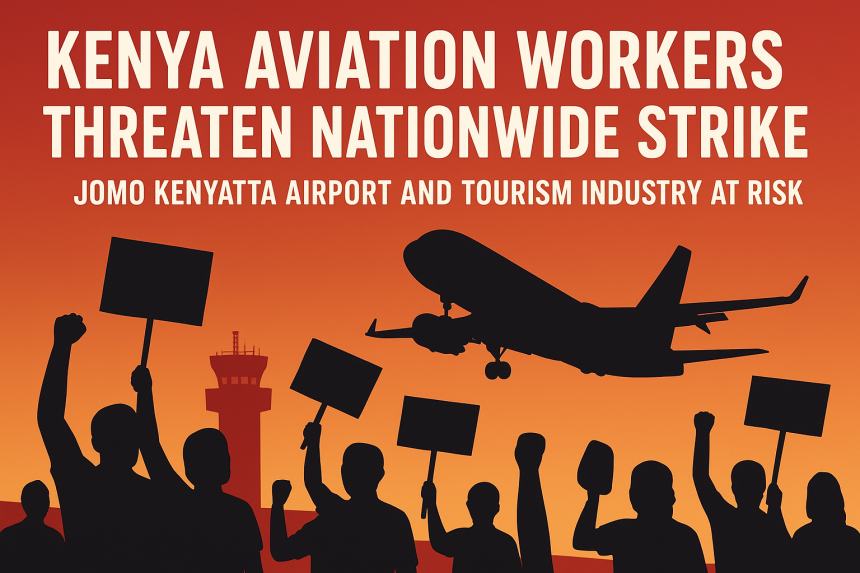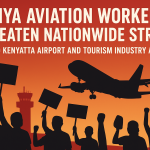Kenya’s aviation industry is facing a fresh crisis after aviation workers’ unions issued a notice of a possible nationwide strike that could paralyze air travel and disrupt the country’s tourism and trade sectors.
The strike threat centers on disputes over working conditions, salary arrears, and government interference in airport operations. If it goes ahead, the strike could bring passenger services, cargo handling, and airport security to a standstill, with Jomo Kenyatta International Airport (JKIA) in Nairobi expected to be the hardest hit.
Union officials argue that staff shortages and poor pay have worsened working conditions, while recent restructuring efforts at the Kenya Airports Authority (KAA) have created uncertainty for employees. They warn that without government intervention, aviation workers will have no choice but to down their tools.
Impact on Economy and Tourism
Analysts warn that the strike could have far-reaching economic effects. JKIA is a regional hub, handling millions of passengers annually and serving as a gateway for international trade. Disruptions could affect Kenya Airways’ operations, international tourism arrivals, and cargo exports such as flowers and fresh produce—sectors that are crucial to Kenya’s economy.
Travel experts also caution that the timing of the strike, close to peak travel season, could hurt Kenya’s reputation as a reliable air travel hub in East Africa.
Government Response
The Ministry of Transport has called for urgent dialogue between the unions and aviation authorities to prevent escalation. Officials insist that measures are being taken to improve working conditions and assure passengers that contingency plans will be put in place to minimize disruptions.
Outlook
If negotiations fail, Kenya could see its first major aviation strike in years, with ripple effects across the tourism, logistics, and trade industries. Many stakeholders are urging both sides to compromise to safeguard the country’s economy and its global reputation as a leading aviation hub.









